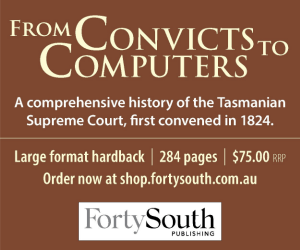A convicted terrorist has won a High Court bid to restore his Australian citizenship.
Abdul Nacer Benbrika was found guilty in 2008 of leading a terror cell which planned a violent jihad. Benbrika received a 15-year jail term but remained in custody on a continuing detention order.
He was then placed in immigration detention after the then Home Affairs Minister Peter Dutton cancelled his citizenship in 2020.
In the High Court, the Algerian citizen argued Section 36D of the Australian Citizenship Act 2007 (Cth) was invalid because it allowed the Minister for Home Affairs the exclusively judicial function of punishing criminal guilt.
The High Court today ruled 6-1 in his favour, declaring s 36D to be invalid and that Benbrika was an Australian citizen.
Benbrika arrived in Australia in 1989 and became an Australian citizen in 1998.
In 2008 in the Victorian Supreme Court, he was found guilty of being a member of a terrorist organisation, directing its activities, and possessing a thing connected with preparation for a terrorist act.
The trial judge established Benbrika was the amir (leader) of an organisation, referred to as “the jama’ah”, whose members he encouraged to train for violent jihad.
He was sentenced to seven years in prison for the first offence, 15 years for the second offence and five years for the third offence.
In 2010, the Court of Appeal upheld the first two convictions and set aside the third. It also reduced his sentence of imprisonment to five years for the first offence but upheld his sentence of 15 years’ imprisonment for the second offence.
When his sentence expired in November 2020, his Australian citizenship was revoked, and under the Migration Act 1958 (Cth), he was granted an ex-citizen visa.
In the High Court’s 71-page decision, Justice Gordon said the court “must be cognisant of, and vigilant to protect against, laws that are corrosive to or erode the key constitutional values or rationales that underpin the separation of judicial power”, and it “would be taking a grave misstep if it were to accept the respondents’ submission”.
Justice Steward, dissenting, stated the purpose of s 36D is “to ensure that membership of the Australian body politic does not include those who have acted in a way incompatible with the shared values of the Australian community, and who have thereby demonstrated that they have severed their bond with that community by repudiating their allegiance to Australia. That purpose involves no species of punishment.”
The High Court also ordered the Minister for Home Affairs pay court costs.









Share this article